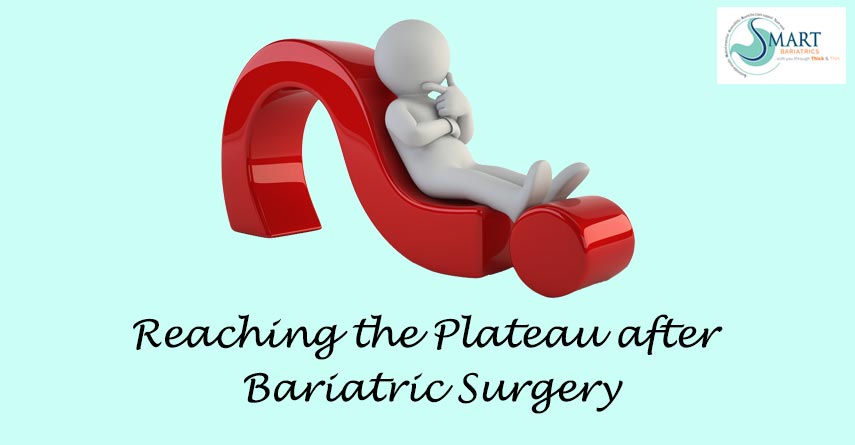
After Bariatric surgery you are likely to lose anything between 4 and 8 kgs every month. However, day to day or even week to week, fluctuations in weight may occur due to many reasons. Sometimes patients stop losing weight for no apparent reason. This is known as the plateau phase. You can get worked up and wonder there is something wrong with you or if the surgery is not working properly.
Bariatric surgery helps in losing weight fairly rapid at first, and then over the time the weight loss becomes more gradual. Usually weight loss happens for about 12 to 18 months post-surgery and stabilizes after that. During this period, weight loss does not follow a certain trend, but can be erratic with alternating periods of significant weight loss followed by no weight loss.
Status of hydration is the most common cause of this variation. Other factors are gaining muscle mass, empty or full bladder/constipation or oedema before menstrual cycles. Thus, patients are recommended not to weigh themselves too frequently to avoid inaccuracies due to these factors.
Exercise routine and eating habits also affects your metabolic rate and weight loss pattern. Exercise increases muscle mass which is beneficial in many ways, however may result in slower weight loss. Patients are advised to eat several small meals a day high in protein. A reduction in the frequency by starving during the day and binge eating at night may disturb weight loss pattern.
Over the time the stomach and the intestines adapt to its new surgical change which allows for better absorption of food, especially fats, though adhering to eating small meals high in protein may limit this effect. The newly made gastric pouch may enlarge over the time and accommodate larger meals, which interferes with the weight loss and may predispose weight gain. To resume weight loss your surgeon may advise surgical revision in select cases. This dilatation of the stomach can be prevented by avoiding using straw and aerated liquids.
After bariatric surgery, you should not drink during meals, to prevent rapid transition of food from the stomach, resulting in elimination of the feeling of fullness and ingestion of larger meals.
In general, it is normal to have periods of plateaus during all phases of weight loss journey. Complying with the post-surgery diet and lifestyle modification advice may shorten the periods of plateau and finally lead to greater long-term weight loss.
It is important to remember that Bariatric surgery is a tool, if used appropriately may help you achieve successful weight loss, if not, overall weight loss may fall below expectations.
To achieve your health goals stay in touch with us, we are with you through THICK and thin!!!





